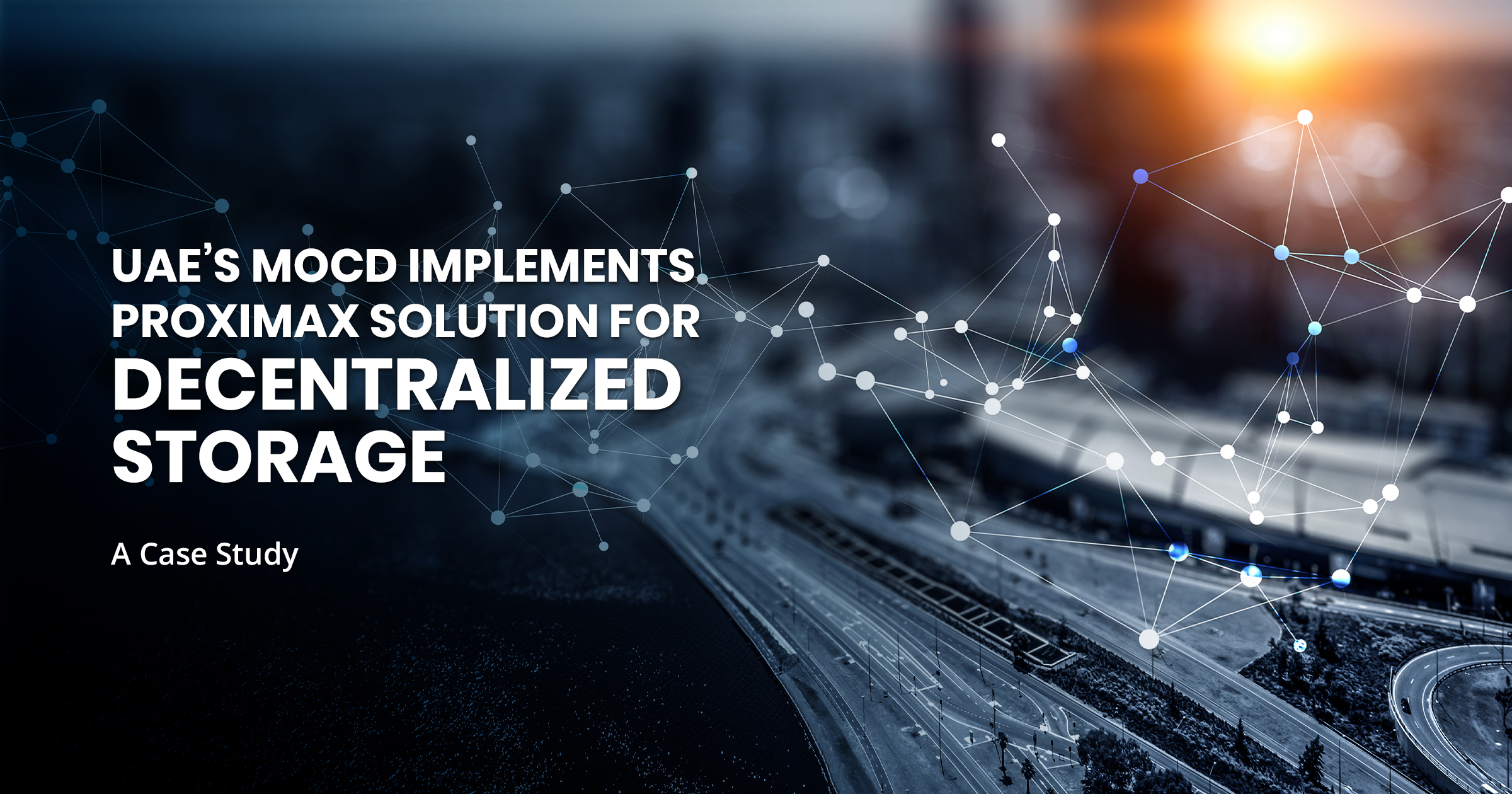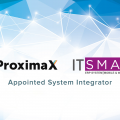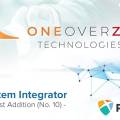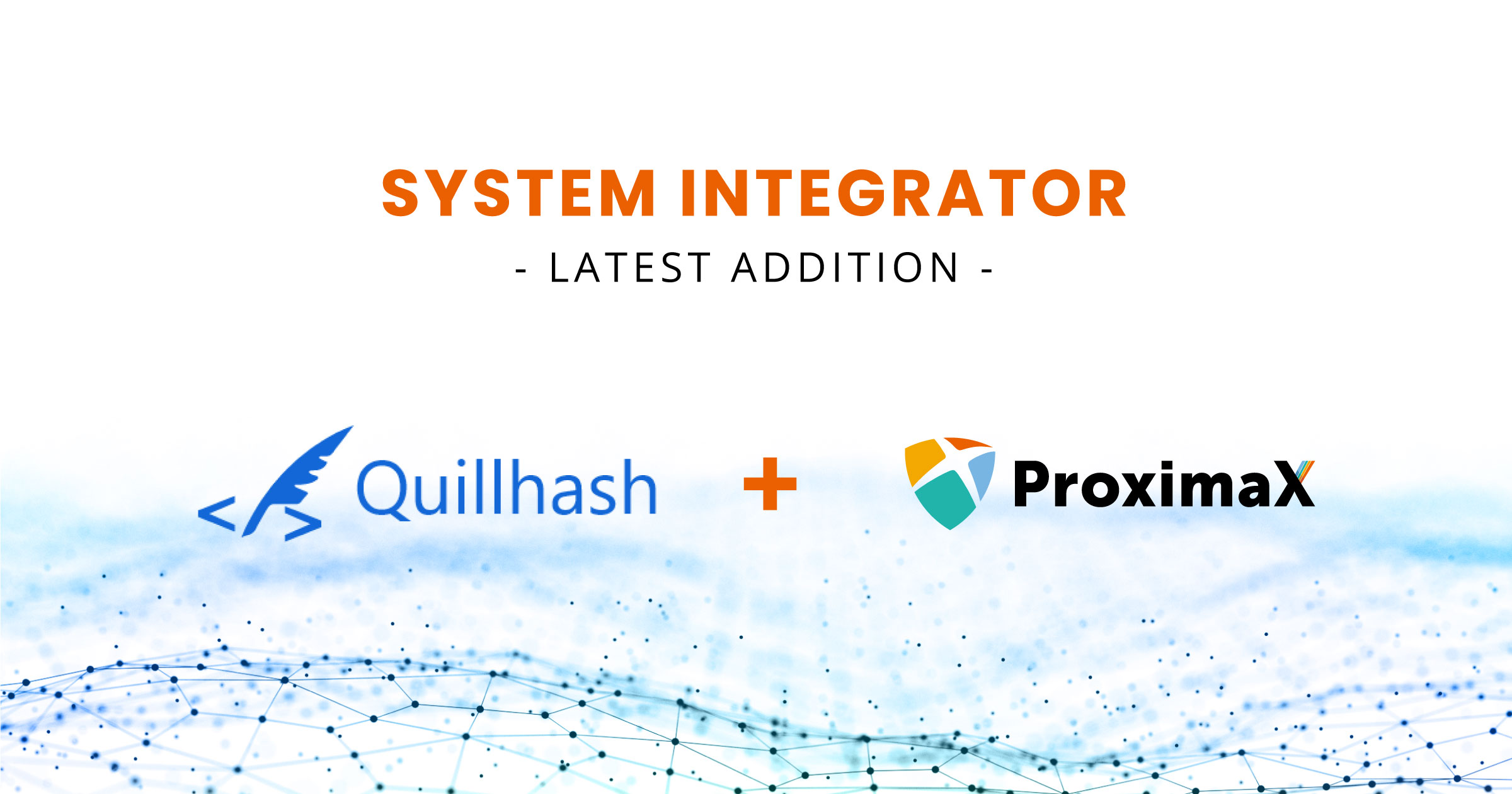Case Study: UAE’s Ministry of Community Development Implements ProximaX Solution for Decentralized Storage

The Problem: Lack of secure data storage infrastructure to support e-notary and e-voting systems
The Ministry of Community Development (MOCD) of the United Arab Emirates works on multiple fronts. It aims to improve social development across the UAE by improving society and family coherence and creating a society where people contribute toward developing their surroundings.
In doing so, MOCD thoroughly depends on data storage systems that are used for the notarization process of critical government as well as commercial documents. In addition, MOCD relies on a voting process to make decisions within the organization, whose results are stored in their storage.
However, government and commercial documents are stored in a centralized storage system and the notarization process for these documents is mostly paper-based. This not only poses the risk of documents being tampered with but also makes the entire process cost and time-intensive. Besides, the reliance of the voting process on a central infrastructure puts its integrity in jeopardy. Parties in control can manipulate the system and may largely change the end results of voting processes.
These risks arise due to the presence of centralized infrastructure where central entities can single-handedly manipulate the data.
The Solution: A decentralized infrastructure to offer storage alongside e-notary and e-voting systems
The answer to challenges faced due to centralization is one — decentralization. A decentralized infrastructure such as the one provided by blockchain technology naturally occurred as the best potential solution. This method of solution calls for using decentralized technology, dovetailing itself into a centralized environment thus providing the right solution for their purpose.
The challenge, however, was choosing the right blockchain solution that enabled them to build on top of their existing infrastructure. This was critical because MOCD did not want their entire infrastructure changed but only some parts that were in dire need of a decentralized solution, such as their data security, e-notary, and e-voting system.
This is where ProximaX comes in. Compared to traditional blockchain infrastructures, ProximaX is a class ahead. It brings together the usability of a distributed storage, peer-to-peer streaming, Supercontracts, and other service layers into one unified framework. Of course, besides its exclusive features, ProximaX also brings the basic benefits of blockchain, which are, resilience, transparency, immutability, irreversibility, and traceability. These advanced features led MOCD to choose ProximaX for building their next-generation storage, voting, and notary infrastructure that are suitable for enterprises.
Figure 1: Animated Menu Panel on Solution Dashboard
ProximaX Solutions Used by MOCD
To solve the challenges of MOCD, ProximaX deployed a permissioned platform built using ProximaX Sirius. The platform provided a blockchain-based storage system alongside decentralized e-voting and e-notary solutions.
Figure 2: Voting Certificate
The decentralized storage now enables MOCD to store their documents and voting results in an immutable and tamper-evident system. On this system, every document is divided into several parts, encrypted, and then the encrypted smaller parts are stored across multiple storages. A key provided by the blockchain can be used to unencrypt the documents to view and read them.
Furthermore, the e-notary system built on ProximaX Sirius allows notarizing the documents electronically in a safe ecosystem, where no one can change the details of the document once recorded. And the e-voting module allows members of MOCD to cast votes electronically without the fear of the votes being tampered with. Following the votes, an immutable and tamper-evident storage system stores the results, making it impossible to change the results.
While MOCD has only implemented two solutions as of yet, the platform’s API gateway enables MOCD developers to continue adding further applications whilst only requiring minimal knowledge of the underlying distributed infrastructure.
Figure 3: Voting Results
The Result: Resilient Storage and Efficient E-Voting and E-Notary Processes
The ProximaX solutions offered a wide range of benefits to the Ministry of Community Development of the United Arab Emirates.
1. Using a decentralized storage system guaranteed 100% uptime, meaning the government can rely on the system to record, store, and extract documents at any time.
2. Unlike traditional blockchains, ProximaX allows continuous updates of new characteristics and functionalities on the blockchain layer without disrupting the functionality of a previously deployed platform. This allows the solution to grow in parallel with the new digital processes that MOCD might have in the future.
3. Now that all data transactions will be recorded on the blockchain, every document is tamper-evident. The government can, at any time, audit the records to check if there were alterations made to the data.



